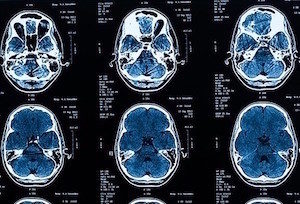 New medical research continues to show the long lasting damage that can result from a traumatic brain injury (TBI). If you have suffered a TBI, or a concussion due to the negligence of another person, please contact an experienced San Antonio brain injury lawyer for immediate legal assistance.
New medical research continues to show the long lasting damage that can result from a traumatic brain injury (TBI). If you have suffered a TBI, or a concussion due to the negligence of another person, please contact an experienced San Antonio brain injury lawyer for immediate legal assistance.
Signs of a Traumatic Brain Injury
All head injuries require immediate attention from a medical professional. Even seemingly minor head injuries can actually lead to serious issues. Sometimes traumatic brain injuries are difficult to spot, if any contact to the head has occurred, the following symptoms may be signs of a TBI:
- Loss of consciousness, no matter how brief;
- Short term memory problems or general confusion;
- Feelings of numbness in the fingers or toes;
- Headaches, nausea or dizziness;
- Vision issues; or
- Unusual fatigue.
A TBI requires immediate treatment. It is always better to be safe rather than sorry when dealing with your brain. Always keep a close eye out from the common TBI symptoms.
Traumatic Brain Injury Liability
In Texas, proving liability in a concussion or traumatic brain injury case is usually about negligence. You can hold another party liable for your injuries if you can prove that your injury occurred because of their negligent behavior. There are four elements of negligence:
- Duty
- Breach
- Causation
- Damages
Brain injuries occur in a wide variety of situations, from car accidents to recreational sports games. Your ability to prove negligence will depend entirely on the exact circumstances of your injury. For example, imagine that you suffered a TBI in a car accident after you collided with a drunk driver who ran a red light. In this case, you should be able to prove that the other driver was negligent. The driver had a duty to operate their vehicle in a safe manner. They breached it by driving while under the influence of alcohol and then ignoring a red light. Further, ignoring the red light was the direct cause of the crash and you sustained real damages. In that scenario, you would be able to prove negligence and hold the other driver liable for your brain injury.
As a counter example, consider a situation in which you were playing a recreational soccer at the park. Both you and another player were making a good faith effort to chase after a ball. Neither of you noticed each other, and you collided. As a result, you suffered a traumatic brain injury. That is an unfortunate scenario, but it would likely be difficult to prove negligence. If the other player was making a good faith effort to get the ball, just like you were, then they most likely did not breach their duty of care. However, if they did not make a good faith effort, and instead intentionally put you at high injury risk, then they may have breached their duty of care and may have been negligent. An experienced concussion lawyer should always review the facts of your individual case to determine liability.

Recent Comments